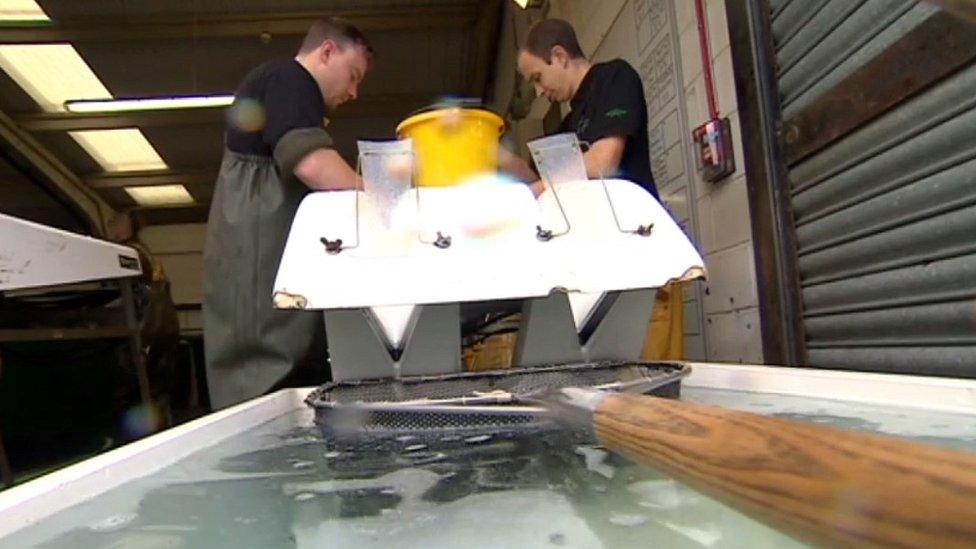Record-breaking weight of fish reared at national farm
- Published
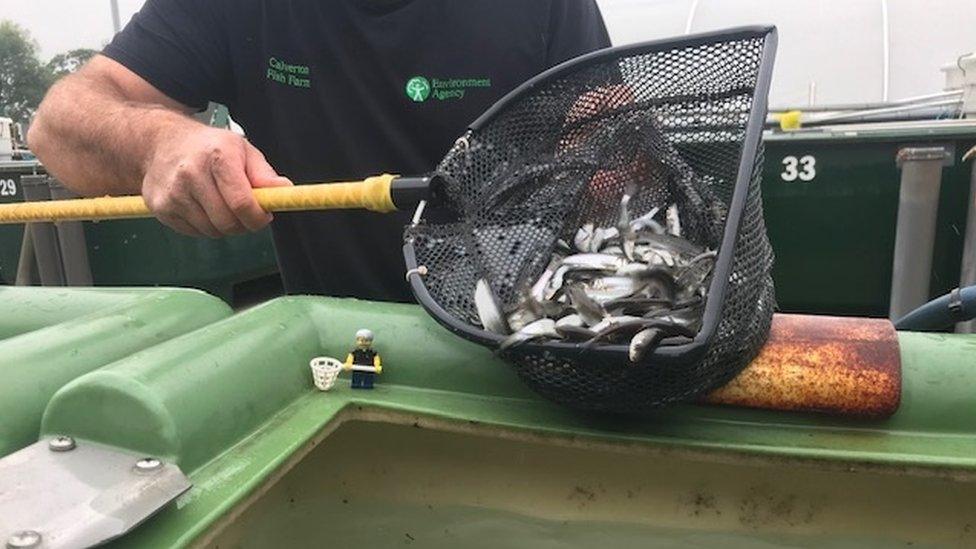
The Environment Agency's national fish farm has reported a "record-breaking year" in the weight of fish produced
More than 500,000 fish have been reared and released into the wild to replace species that have been lost to pollution.
The Environment Agency said a "record-breaking weight of fish" was produced at its national fish farm in Calverton, Nottinghamshire, in 2019.
More than 12 tonnes of fish left the farm, almost a tonne more than in 2018.
They will boost populations where fish have been lost and go into areas where natural reproduction is low.
The agency said it restocked rivers with 520,475 coarse fish, including chub, barbel, dace, roach and crucian carp, along with 7.6m "advanced reared larvae".
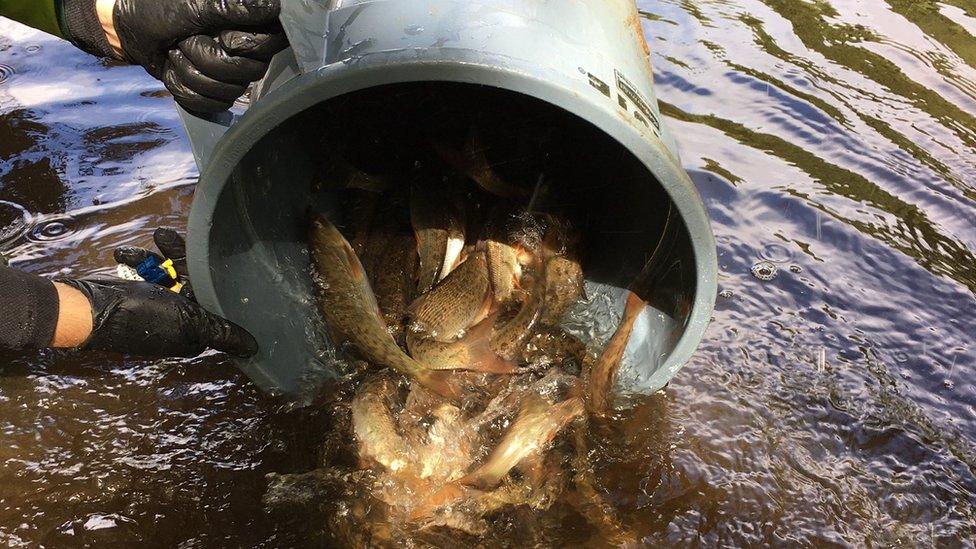
The River Goyt in the north west of England was recently restocked
Alan Henshaw, from the farm, said: "We're pleased to have had another record-breaking year at the fish farm.
"Great care is taken to ensure that every fish we produce is fit for purpose so they can survive when stocked out into the wild."
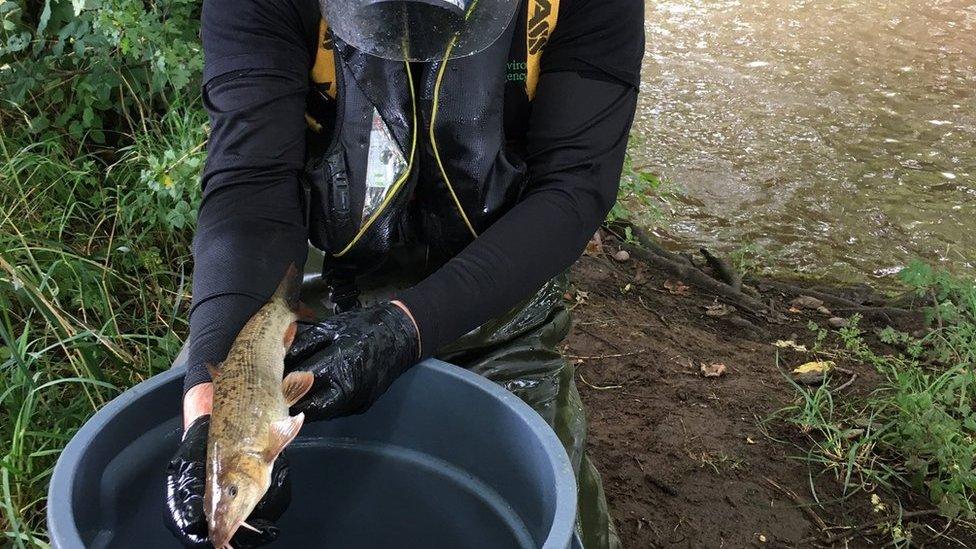
The Environment Agency said 520,475 coarse fish were released into the wild
The fish spend about 18 months at the farm while being fed live natural food and are also trained in "flowing conditions", said Mr Henshaw.
Income from fishing licence fees is put directly into the fisheries, said Heidi Stone, the fisheries manager for the agency.
"The fish [the farm] produces plays an important role in the Environment Agency's work to restore, improve and develop sustainable fisheries in England," she said.
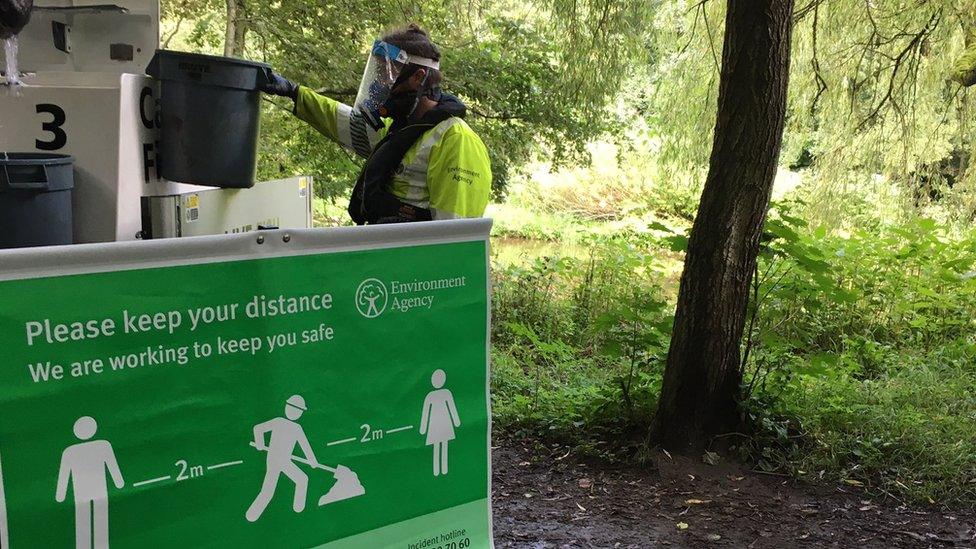
Staff have been stocking rivers over the summer
The agency added the recent hot weather has led to low levels of water in the UK, forcing a number of fish rescues.
The heat caused low flows in some rivers and led lakes and ponds to warm up, causing a fatal drop in oxygen levels.
The public has been urged to get in touch if they see fish in distress.

Follow BBC East Midlands on Facebook, external, Twitter, external, or Instagram, external. Send your story ideas to eastmidsnews@bbc.co.uk, external.
- Published16 February 2019
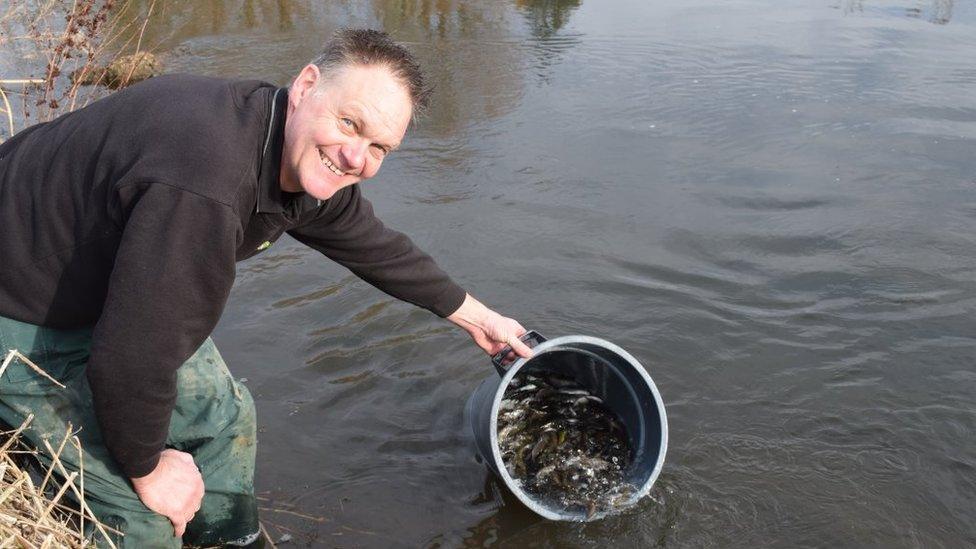
- Published4 November 2017
